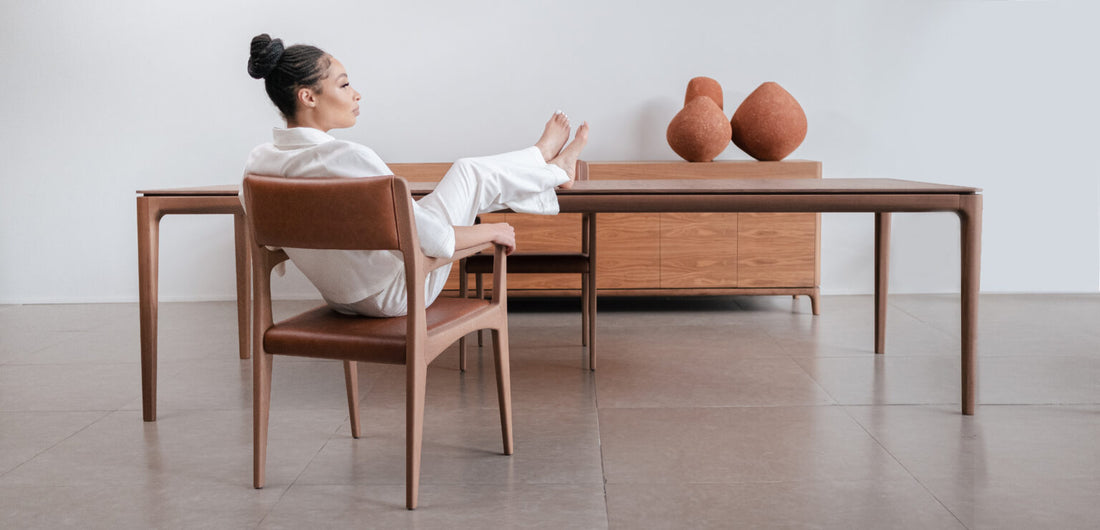
Will Artificial Intelligence Replace the Architect?
Share
In a deep conversation, we became curious about a current but largely misunderstood topic: artificial intelligence and technology in architecture.
We never tire of repeating: we believe that beauty brings peace, it is the feeling of fulfillment and tranquility that we seek to perpetuate. We seek to sustain a point that we defend: the human is, and always will be, at the center, and good things happen when this scale is kindly respected.
Architecture is a way of thinking focused on problem-solving. Artificial intelligence can be a great ally in building scenarios and hypotheses.
It is important to remember that before the brick, there is a vast technological infrastructure that is intertwined in each layer. AI comes with the impetus to make architecture more hybrid.
Possible futures are more important than utopian futures. With AI, we will spend more time on design for cleaner, lower-impact execution. New design steps that are not currently practiced could include disciplines such as algorithmic calculation of the behavior of natural resources for a lower carbon footprint.
The climate emergency makes architecture a key language in understanding new ways of improving quality of life in cities. Reducing waste, making materials more flexible, and having greater precision in engineering things that cannot be seen: the analytical agility of AI can facilitate the design of an architecture of the future that is different from the imaginary image we are used to. Much more sustainable and much less high-tech.
Technology will make the architect's work more comprehensive, an even deeper translator of times and behaviors.
Combined with the scope of incorporation, the power of this action becomes even greater, embracing other segments. Digital production opens up a field of research that also looks to the past: with technology accelerating reasoning, we can revisit ancestral techniques or knowledge with biomaterials.
Transferring the evaluation of technical parameters to artificial intelligence frees up more time for conceptual creative activity. In this context, we will have more time and space to create more meaningful and beautiful spaces and products. As the Campana brothers repeat: one of the great skills of creative Brazil is to transform the ordinary into the extraordinary.
We never tire of repeating: we believe that beauty brings peace, it is the feeling of fulfillment and tranquility that we seek to perpetuate. We seek to sustain a point that we defend: the human is, and always will be, at the center, and good things happen when this scale is kindly respected.
Architecture is a way of thinking focused on problem-solving. Artificial intelligence can be a great ally in building scenarios and hypotheses.
It is important to remember that before the brick, there is a vast technological infrastructure that is intertwined in each layer. AI comes with the impetus to make architecture more hybrid.
Possible futures are more important than utopian futures. With AI, we will spend more time on design for cleaner, lower-impact execution. New design steps that are not currently practiced could include disciplines such as algorithmic calculation of the behavior of natural resources for a lower carbon footprint.
The climate emergency makes architecture a key language in understanding new ways of improving quality of life in cities. Reducing waste, making materials more flexible, and having greater precision in engineering things that cannot be seen: the analytical agility of AI can facilitate the design of an architecture of the future that is different from the imaginary image we are used to. Much more sustainable and much less high-tech.
Technology will make the architect's work more comprehensive, an even deeper translator of times and behaviors.
Combined with the scope of incorporation, the power of this action becomes even greater, embracing other segments. Digital production opens up a field of research that also looks to the past: with technology accelerating reasoning, we can revisit ancestral techniques or knowledge with biomaterials.
Transferring the evaluation of technical parameters to artificial intelligence frees up more time for conceptual creative activity. In this context, we will have more time and space to create more meaningful and beautiful spaces and products. As the Campana brothers repeat: one of the great skills of creative Brazil is to transform the ordinary into the extraordinary.
